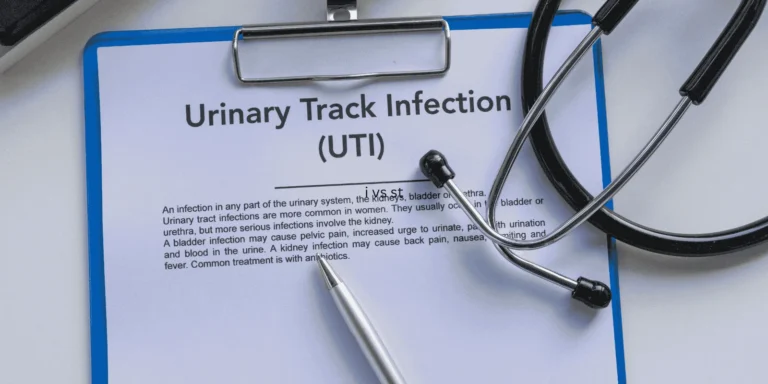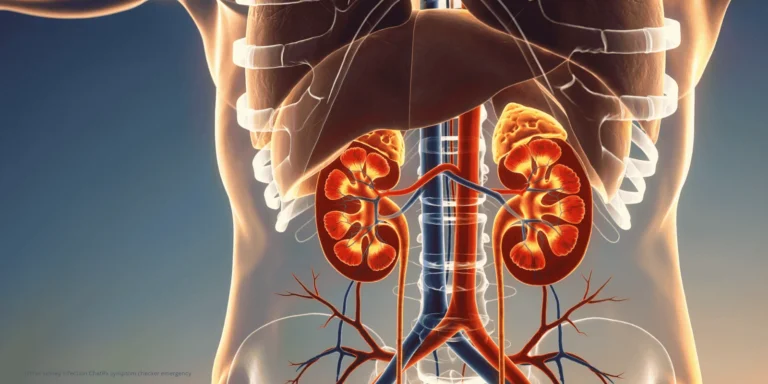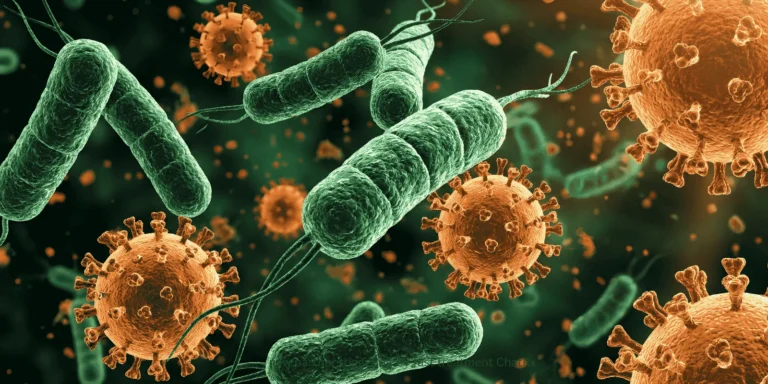Your stomach is doing backflips, you’re glued to the bathroom, and you’re trying to figure out if it was that leftover chicken or if you caught something.
The distinction actually matters more than you might think. Food poisoning and viral gastroenteritis (what people call “stomach flu”) need different approaches and have different timelines.
Timeline Tells the Truth
Food poisoning usually hits fast and hard. You eat something sketchy, and within 2-6 hours you’re in misery. Sometimes it’s even faster with certain bacteria.
I had a patient who ate questionable seafood at 7 PM and was violently ill by 10 PM. That rapid onset screams food poisoning.
Stomach flu takes its time. You might feel a little “off” for a day, then gradually develop nausea, then vomiting and diarrhea over 24-48 hours.
The Fever Factor
Viral gastroenteritis often comes with fever, body aches, and that general “I feel like garbage” feeling that goes beyond just stomach issues.
Food poisoning might cause fever, but it’s usually focused on the GI symptoms. You feel awful, but it’s mainly your gut rebelling.
Symptom Patterns
Food poisoning symptoms tend to be intense but shorter-lived. Severe vomiting and diarrhea for 24-48 hours, then you start feeling human again.
Stomach flu symptoms are often less intense but last longer. Milder nausea and diarrhea that hangs around for 3-5 days, sometimes longer.
The Contagion Question
This is huge. Stomach flu spreads like wildfire through families and workplaces. One person gets it, then everyone’s down for the count.
Food poisoning doesn’t spread person-to-person (unless everyone ate the same contaminated food). If you’re the only one sick and nobody else who ate the same thing is affected, think food poisoning.
What You Ate (And When)
Think back 2-72 hours. Did you eat anything that could’ve been risky?
- Leftovers that sat out too long
- Undercooked meat or eggs
- Raw or suspicious seafood
- Food from a place with questionable hygiene
If nothing stands out, or if family members who ate the same things are also sick, viral gastroenteritis is more likely.
The Recovery Pattern
Food poisoning recovery is usually straightforward. You feel awful, then gradually better, then back to normal.
Stomach flu recovery can be more up and down. You might feel better, eat something, then feel awful again. It’s more unpredictable.
When It’s Definitely Food Poisoning
Certain symptoms point strongly to food poisoning:
- Bloody diarrhea (especially with certain bacteria like E. coli)
- Severe abdominal cramping that comes in waves
- Symptoms that started within hours of eating
- You’re the only one sick in your household
When to Worry About Either
Both conditions usually resolve on their own, but seek medical care if you develop:
- Signs of severe dehydration (dizziness, dark urine, dry mouth)
- High fever (over 102°F)
- Bloody stools
- Severe abdominal pain
- Vomiting that prevents keeping fluids down for 24+ hours
Treatment Differences
Both need rest and fluid replacement, but the approach varies slightly.
Food poisoning: Let your system clear the toxins. Don’t rush to stop diarrhea with medications unless it’s severe.
Stomach flu: Focus on gradual rehydration and bland foods as tolerated. Probiotics might help restore gut bacteria.
The Telehealth Perspective
Both conditions are perfect for telehealth evaluation. We can assess your symptoms, determine which you likely have, provide treatment guidance, and decide if you need in-person care — all while you stay close to your bathroom.
The key is staying hydrated and knowing when symptoms warrant immediate medical attention. Most people recover fine from both, but dehydration can be serious if not addressed.













